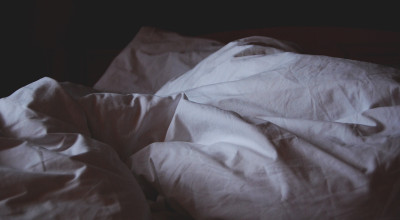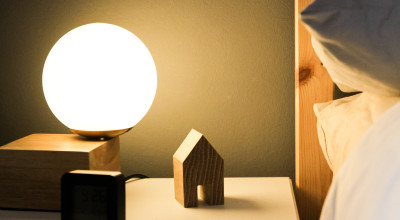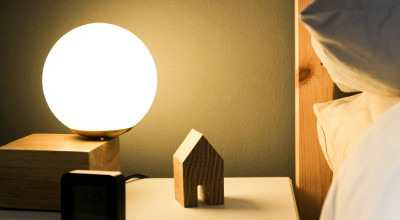How To Get A Better Night's Sleep
January 28th, 2021
I think it’s safe to say we all can recognize how important a good night’s sleep is for your personal health. We have all had those days where you stayed up too late, or you tossed and turned all night and ended up with way too few hours of rest - only to spend the next day as a total zombie, feeling completely drained of life.
Not only is sleep important to simply give you energy to survive the next day, but it can have a huge impact on your health. Let’s dive into a few things that your sleep habits have an affect on that you may not have realized - then we’ll lay out some helpful tips and tricks on how you can improve your sleep habits moving forward.
Here are a few things that sleep can affect that you may not realize:
Your Weight
Believe it or not, short sleep duration is actually one of the biggest links and risk factors to obesity. This is thought to be linked to your motivation to exercise - since you likely won’t have the energy for a workout if you aren’t getting enough sleep - as well as your hormones. If you’re someone who is seeking to lose weight or simply wanting to maintain your current figure, it is important to ensure you are getting enough sleep.
Improved Productivity
This one may seem like more of a no brainer. As we touched on earlier, we all know that if you don’t get enough sleep, you’re likely to move through the next day with little energy, motivation, or focus. This is something that is going to have a big impact on your ability to do your job or even motivation to accomplish simple household tasks. There is even a study that found that short sleep can negatively impact some aspects of brain function to a similar degree as alcohol intoxication
Stroke & Heart Disease
One major impact poor sleep habits have on your health is that you’re at greater risk of heart disease and stroke. Studies show that people who don’t get enough sleep are at far greater risk of heart disease or stroke than those who sleep 7–8 hours per night.
Mental Health
A big struggle for many of us who are battling addiction is our mental health. Sleep is something that can also have a big impact on your mental health - making it of even greater importance for those trying to find and remain in sobriety. Mental health issues like depression are strongly linked to poor sleep quality and even sleep disorders. It has also been estimated that 90% of people with depression complain about their sleep quality. Poor sleep is even associated with an increased risk of death by suicide. The moral of the story here is that sleep is just plain important for your mental health! Of course, there are those who simply have a chronic issue with obtaining enough sleep and they should consult a doctor if these issues become out of their hands.
Your Immune System
We’ve all had our mom’s tell us to “get some rest” whenever we start coming down with a cold or something of the sort. That’s because sleep is so important to our bodies immune function. Even a small loss of sleep has been shown to impair immune function. One large 2-week study monitored the development of the common cold after giving people nasal drops with the cold virus. They found that those who slept less than 7 hours were almost 3 times more likely to develop a cold than those who slept 8 hours or more. Crazy! So the short of it is that you should be ensuring you get a minimum of 8 hours of sleep per night in order to try to keep your immune system strong and it’s even more important to stress sleep if you do feel you’re starting to get sick.
Now that we have outlined some key reasons as to why sleep is so important for us, let’s look at some ways that you can help improve your sleep habits.
1) Set yourself up for success. If you are staying
up too late knowing that you have an early morning the next day, you’re setting
yourself up for failure. You need to ensure you are blocking out your 8 hours
of sleep appropriately and ensuring you’ll be home and in bed in time to get
those Z’s.
2) Increase your bright light exposure in the daytime. Your body has an interesting thing called circadian rhythm - which is it’s natural time-keeping clock. By allowing yourself a certain amount of sunlight a day, you’re keeping your circadian rhythm healthy, allowing it to tell your body when it needs to be awake and when it is time to get some sleep.
3) Don’t consume caffeine too late into the day. Many of us need coffee or caffeine of some kind to kickstart our day and keep us going, but consuming caffeine too late in the day can throw off our body’s internal clock. Consuming caffeine late into the afternoon/evening will kickstart our nervous system and throw off our circadian rhythm that would normally tell our bodies to start winding down.
4) Keep a regular sleep schedule. If you’re constantly going to bed and waking up at completely different times everyday, your body is never going to get into a natural rhythm. When you are being consistent and going to sleep around the same time every night, your body will know it needs to start to wind down by that time and your body will begin to have a natural alarm clock when you’re waking up at the same time every morning.
5) Lower the temperature. Your body and bedroom temperature is something that can have a big impact on sleep. As you may have experienced during the summer or in hot locations, it can be very hard to get a good night’s sleep when it’s too warm. The average temperature that most people seem to be comfortable at is 70 degrees, but experiment with that works best for you!
Closing Thoughts
At the end of the day, there are so many other things that you can do to ensure you’re getting a good night sleep - like regular exercise, staying off your phone close to bedtime, and even taking a low dose melatonin supplement if needed. We hope that this blog post showed you how important sleep is to our overall health and wellbeing. We also hope you take some of these tips and implement them into your daily lives for a healthier and happier you!


